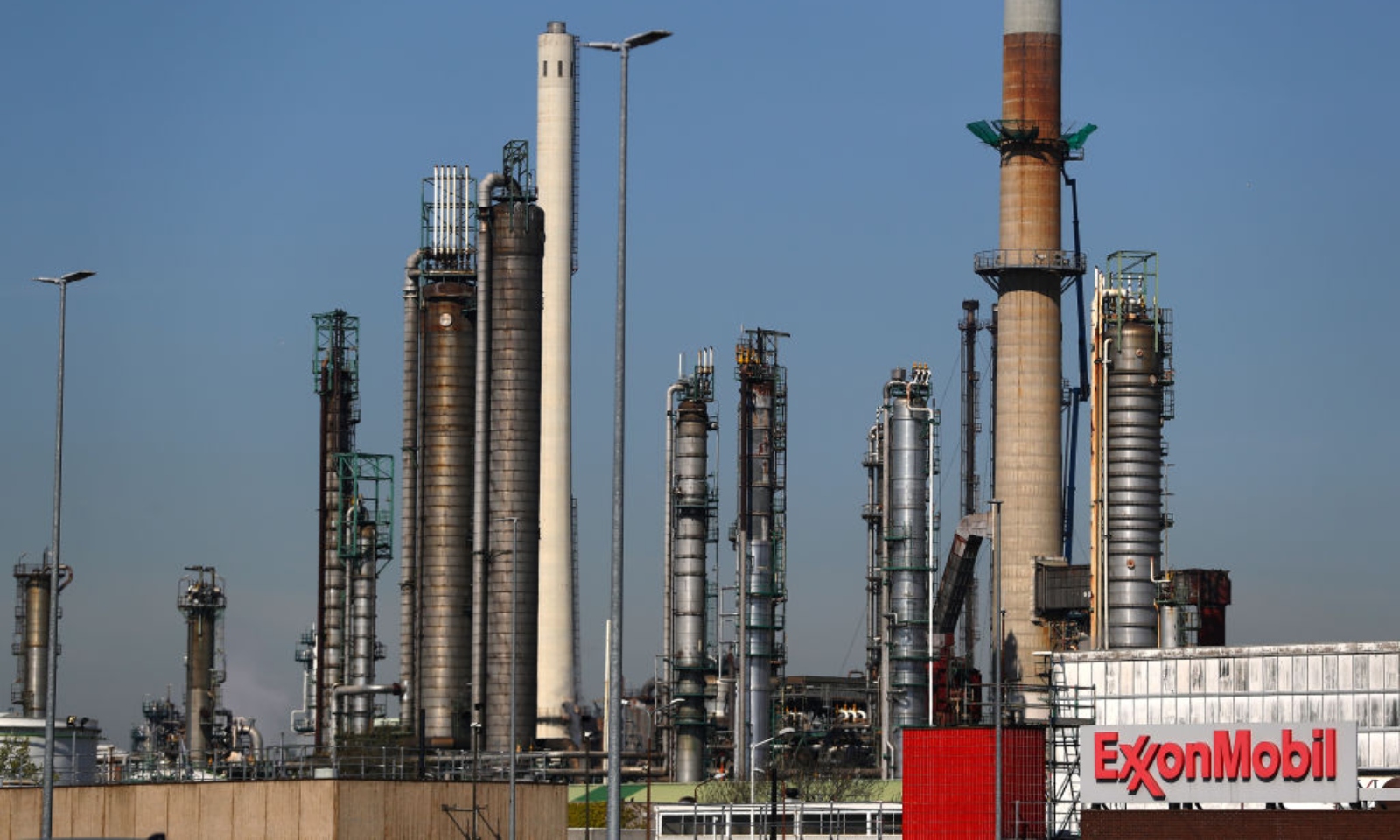While Americans were reckoning with sky-high gas prices at the pump last year, the country’s biggest oil giant was raking in more money than ever. Exxon Mobil, one of the world’s largest oil companies, reported on Tuesday that it made $56 billion in profits in 2022. That’s the most a Western oil company has ever earned and averages out to around $6.3 million an hour over the course of the year.
It’s not just Exxon. Other major oil companies such as Chevron and Shell are expected to report similar results in the coming weeks, pushing their combined profits to around $200 billion, according to the financial markets data firm Refinitiv.
Darren Woods, Exxon’s CEO, praised the company’s results on calls with the press, calling them proof that it was right to resist pressure to pull back from fossil fuel production and invest more in renewables. Other oil giants like BP have shifted more of their resources to solar and wind projects – investments that don’t have immediate payoffs.
“We leaned in when others leaned out, bucking conventional wisdom,” Woods said in an interview with CNBC.
The unprecedented earnings stem from a combination of trends. In the early days of the pandemic, demand for oil plunged and gas prices nosedived, prompting companies like Exxon to cut costs by shuttering refineries and laying off workers. Just as the economy began to recover, Russia invaded Ukraine, causing a major supply squeeze as the demand for oil returned to pre-pandemic levels. The result: soaring gas prices and major profits for Exxon.
Governments have responded with anger to Big Oil’s rising profits. In the fourth quarter of 2022, a new EU windfall tax dealt a $1.3 billion blow to Exxon’s overall earnings. The company is now challenging the policy in court.
“It’s just unlawful and bad policy trying to tax something, when what you actually need is for it to increase,” Exxon’s CFO Kathryn Mikells told Reuters. “It has the opposite effect of what you’re trying to achieve.” The European Commission has maintained that the windfall tax is within its legal authority.
President Joe Biden has also lashed out at American oil companies, accusing executives of limiting production at a time when gas was prohibitively expensive.
“The latest earnings reports make clear that oil companies have everything they need, including record profits and thousands of unused but approved permits, to increase production, but they’re instead choosing to plow those profits into padding the pockets of executives and shareholders while House Republicans manufacture excuse after excuse to shield them from any accountability,” said White House spokesman Abdullah Hasan.
Absent from the discussion is any mention of what boosting oil production could mean for the Biden administration’s climate goals. The International Energy Agency has said that no new oil and gas fields should be developed if the world is to stay on track to limit global temperature increase to 1.5 degrees Celsius above pre-industrial levels and avoid the most disastrous impacts of climate change.
But the rush to wean European countries off Russian natural gas has driven the president to approve new fossil fuel projects. This week, his administration is reportedly planning to direct the Department of the Interior to grant partial approval to a massive new oil drilling project on federal lands in northern Alaska. Led by oil giant ConocoPhillips, the so-called “Willow project” is expected to unlock more than 600 million barrels of crude, a prospect at odds with Biden’s stated goals of taking action against climate change.
After news of the upcoming report broke, environmental advocacy organizations such as the National Resources Defense Council blasted the Biden administration, accusing it of planting a carbon bomb at a time the world needs just the opposite.
“We can’t keep drilling to the ends of the Earth while a runaway climate crisis ravages our world,” said Manish Bapna, the NRDC’s president, in a statement. “The administration needs to draw a line in the tundra, hold the line on carbon pollution, and speed the shift to cleaner, smarter ways to power our future.”



